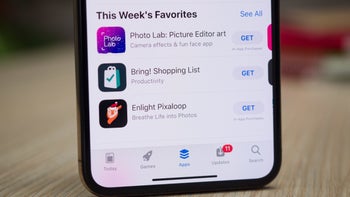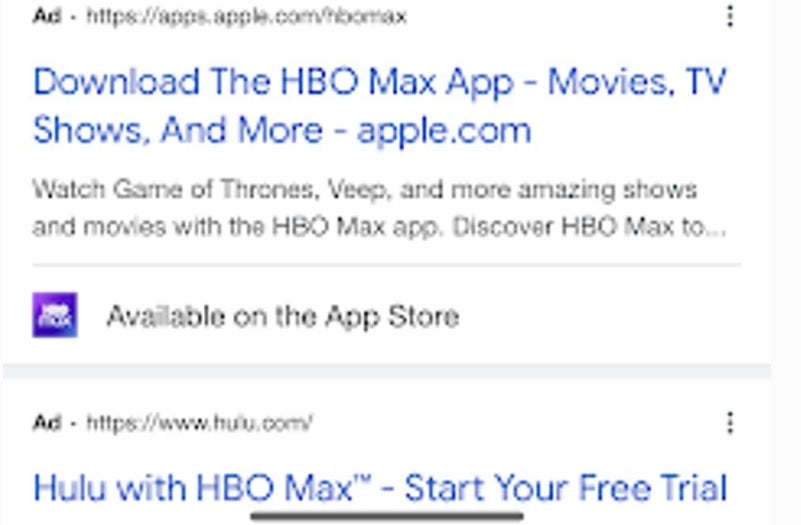Apple quietly buys ads for subscription apps as it profits from an arbitrage play

According to a report in Forbes, several app developers say that Apple is secretly purchasing Google ads for iOS subscription apps found in the App Store without approval from the apps' developers. The report claims that Apple is doing this to help it collect millions of dollars in subscription revenue and calls it "ad arbitrage." Arbitrage is the practice of making a hedged bet on Wall Street by buying and selling the same shares in different markets to profit from a small difference in price.
Apple is paying to advertise subscription apps to collect its 30% and 15% cut of in-app payments
What Apple is doing, according to Forbes, is paying its own money to advertise an app. Let's say for example that Apple is paying to advertise HBO Max on Google, spending its own money. Now you might think that having Apple advertise your business would be great, but there is a catch. If the app in question allows subscribers to make their payments through Apple's in-app payment process, the tech giant gets 30% of the subscription cost for the first year, and 15% for each subsequent year that the subscription runs for.

HBO Max ad supposedly paid for by Apple
Some subscriptions can cost users hundreds of dollars a year. Apple could be paying $5 to $10 for each ad that leads to a new subscription and the revenue could be $50 or more. One source said, "The customer doesn’t know, the user doesn’t know that $54 is going to Apple, not the developer." And there is more. When a subscriber pays for a subscription through Apple's in-app payment platform, they are considered Apple's customers and Apple doesn't reveal information about them making it hard for the developers to handle customer service.
A marketing executive from one app developer pointed out the difference between dealing with a customer signed up through Apple and a customer whose subscription was processed by the developer. "The user experience is much worse. When you buy with the developer, they have a relationship with you ... when you buy from Apple: sorry, you're Apple's customer, not ours, and if you have a problem with a subscription … we can’t really help them."
And this doesn't take into account the hike in ad prices that Apple is causing when it bids for the same slots. While Apple is spending money on advertising HBO Max in order to get that percentage of subscription fees that run through its platform. This forces HBO to spend more than Apple to get the top ad slot so it can be noticed by consumers.
Another source explains how Apple's little arbitrage game is negatively affecting developers. "It hurts the advertiser LTVs (life-time value of a customer) are lower ... so it doesn't just cost more to advertise, but you can’t spend as much. Apple is not just making more money off developers ... it’s hurting their business."
Apple has a burning desire to get into the advertising game
Some analysts have told clients that Apple's App Tracking Transparency feature is a smokescreen to cover up Apple's own advertising ambitions. As one source says, "Anyone that understands the basics of arbitrage could invent this. We all know what Apple’s doing for its privacy stuff is for its own pockets. It didn’t sit right that in the background they've been doing this to developers ... it’s not ethical."
You can tell whether an ad for a subscription service was placed by Apple or the app developer by clicking the link. If it takes you to the App Store, the ad came from Apple. If the link takes you to the developer's website, the ad came from the app's developer.
Since Apple is advertising on Google, it could gum up the works by preventing Apple from slotting its ads through its platform. But Google has reportedly told complaining app developers that it is not up to the company who buys ads on its websites. And Google's own policies allow Apple to use trademarks belonging to other companies if the ads are "primarily dedicated to selling (or clearly facilitating the sale of) products or services, components, replacement parts, or compatible products or services corresponding to the trademark."










Things that are NOT allowed: